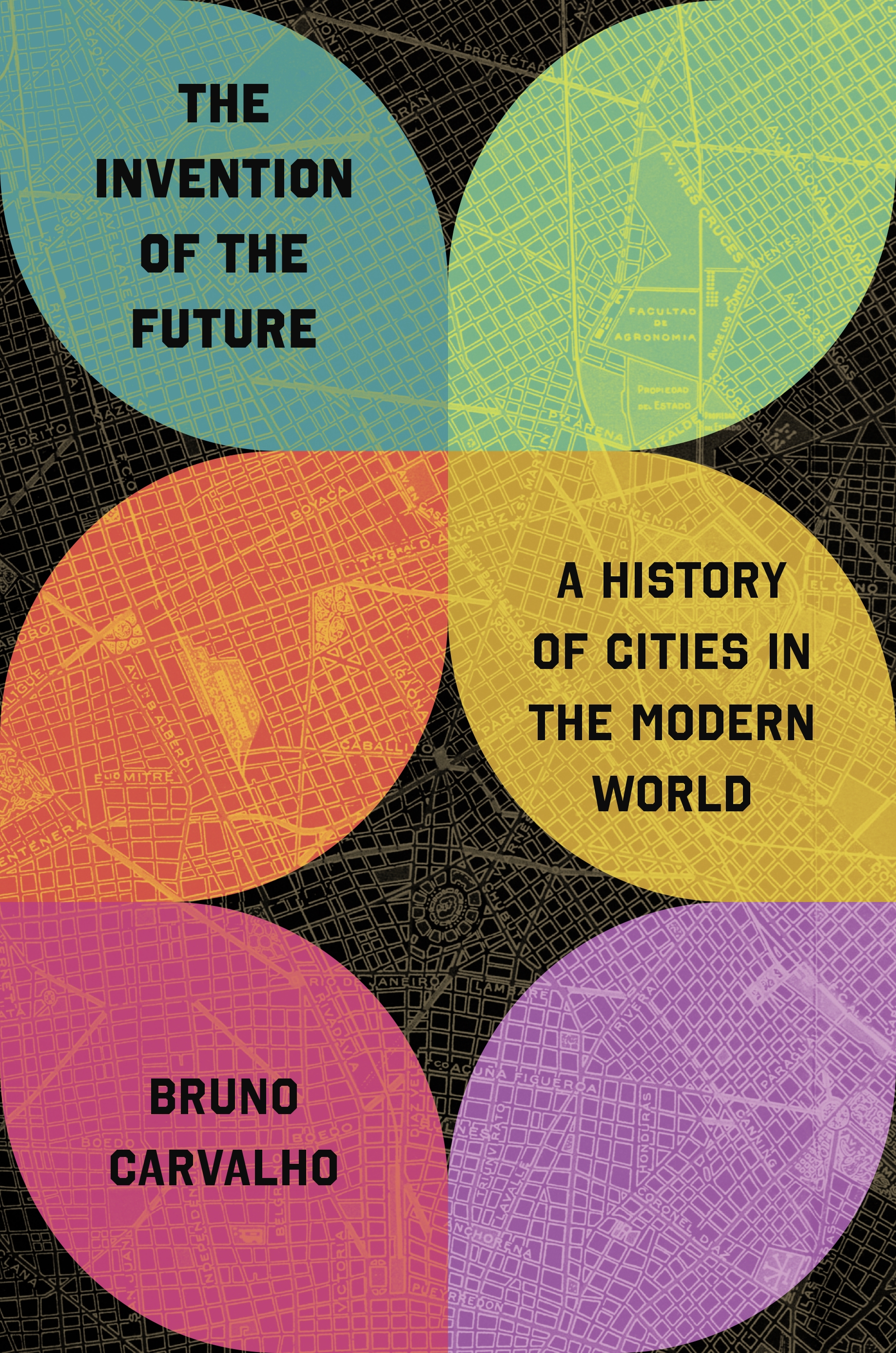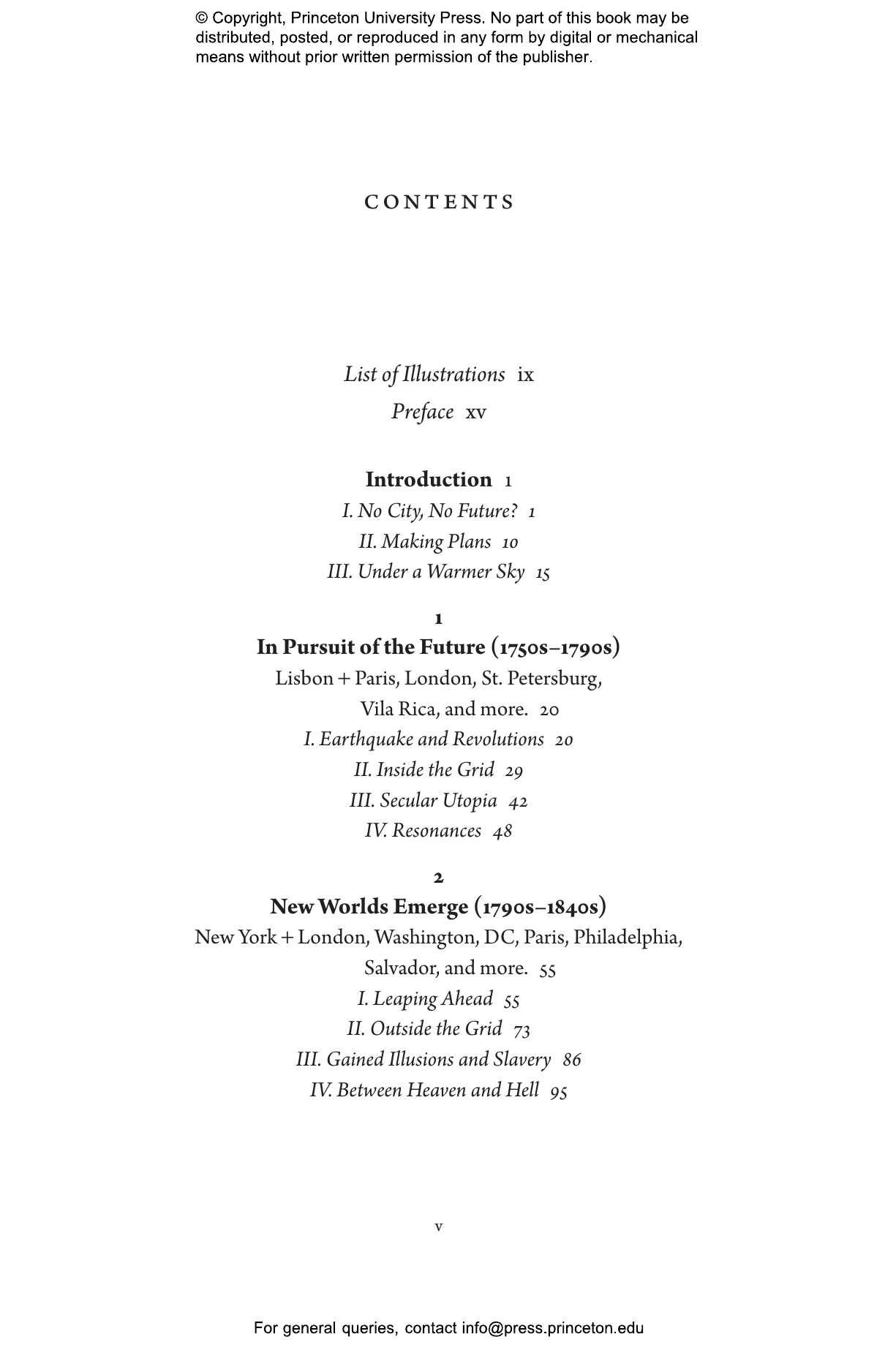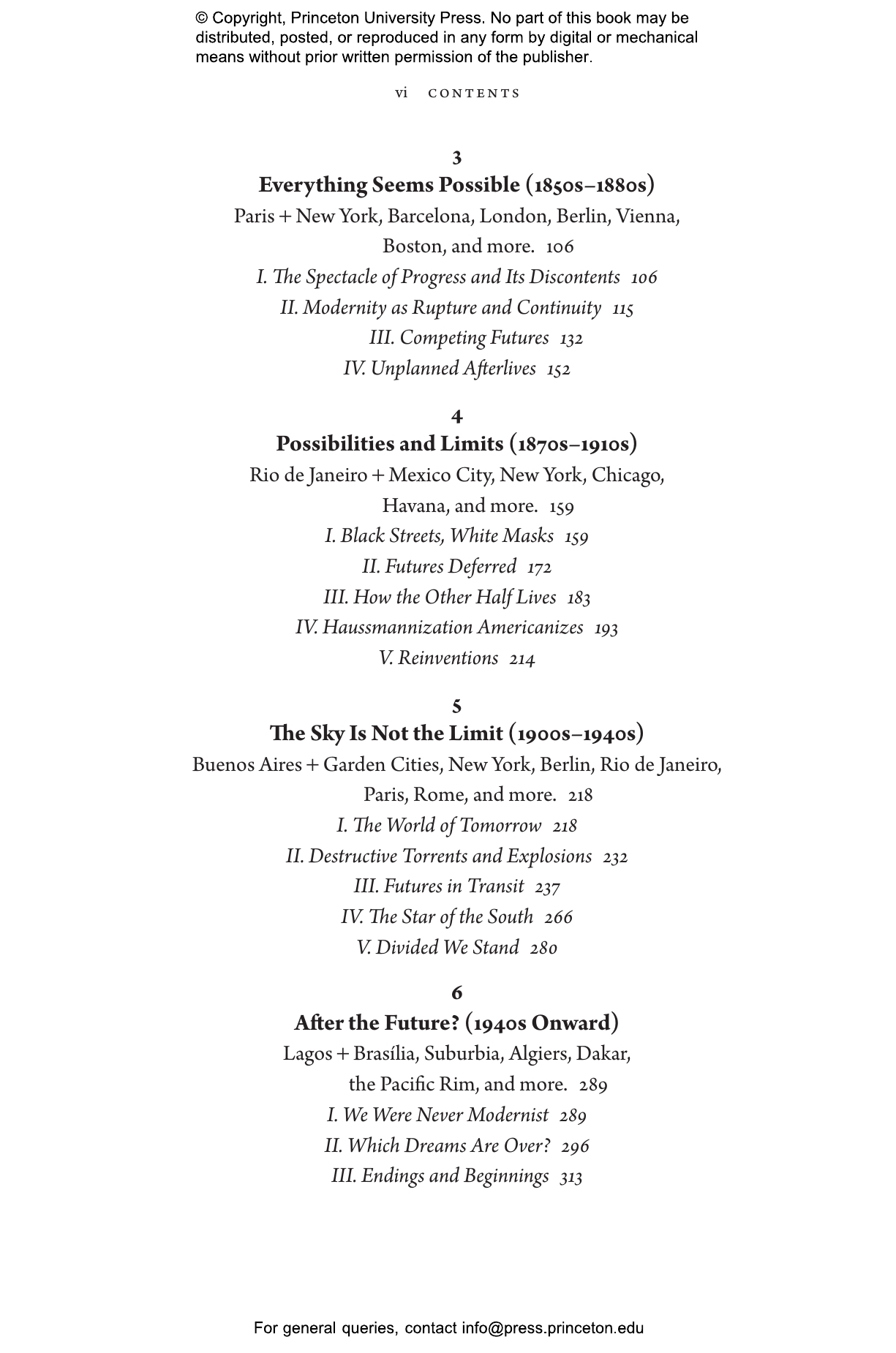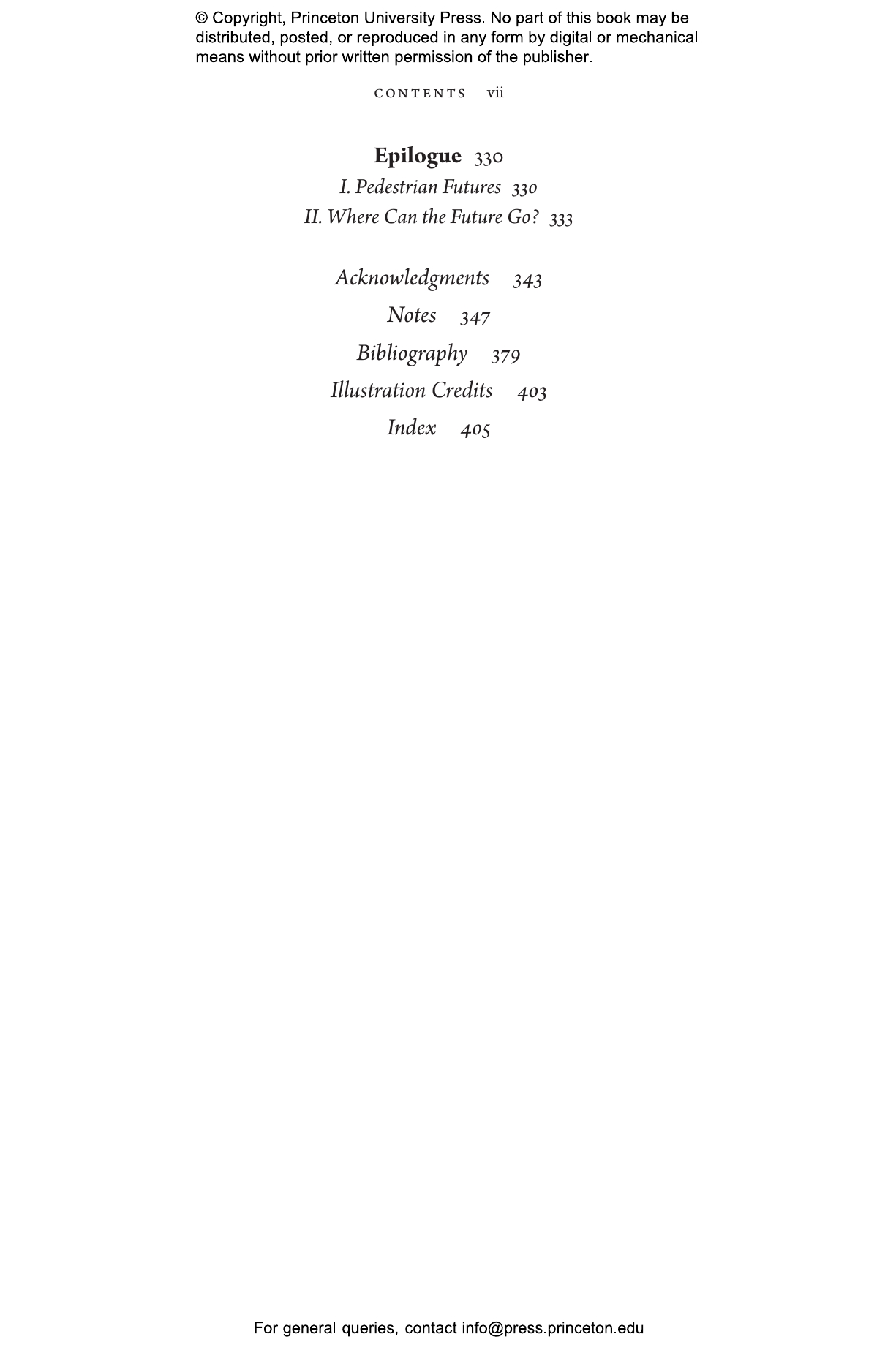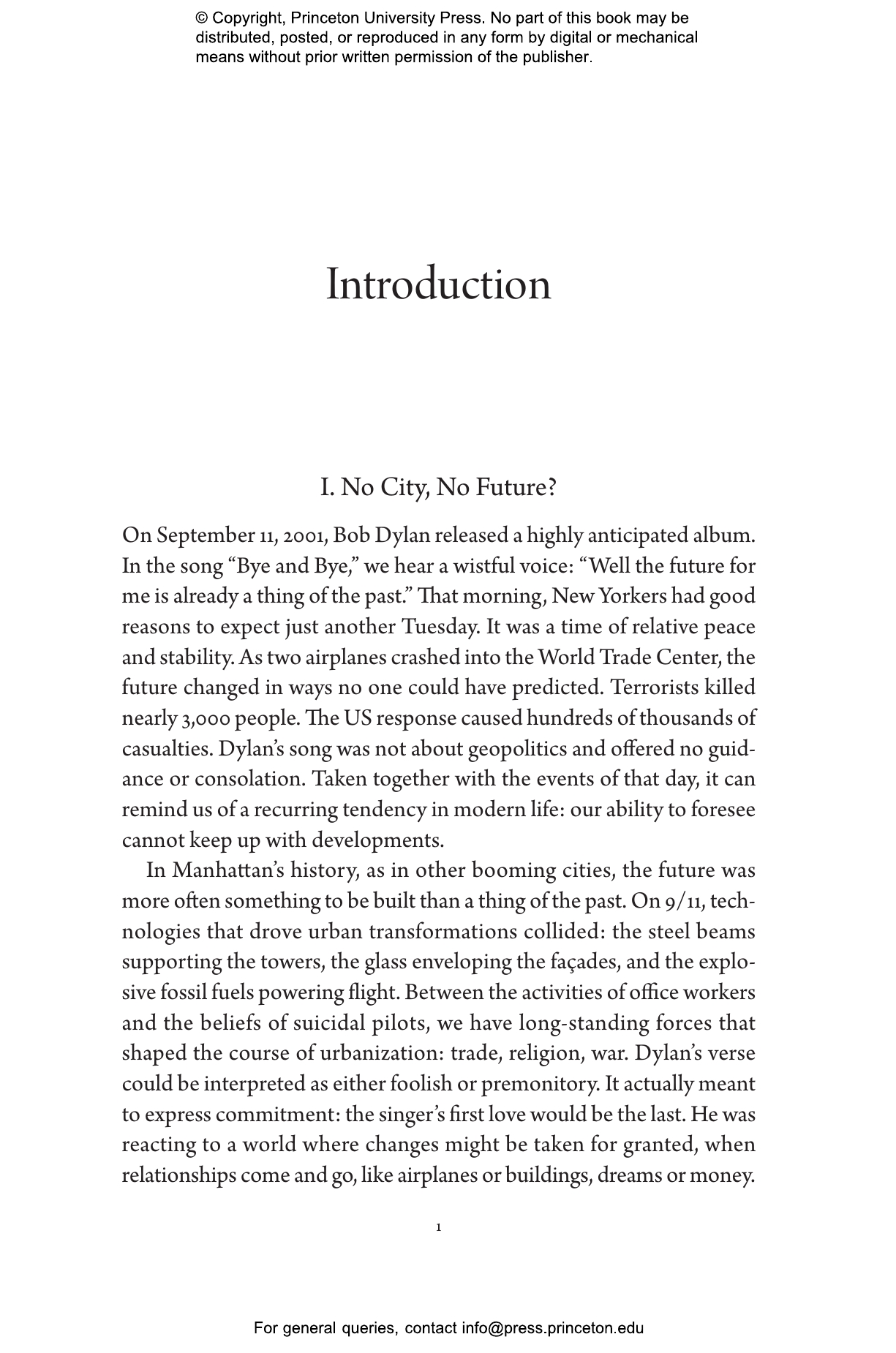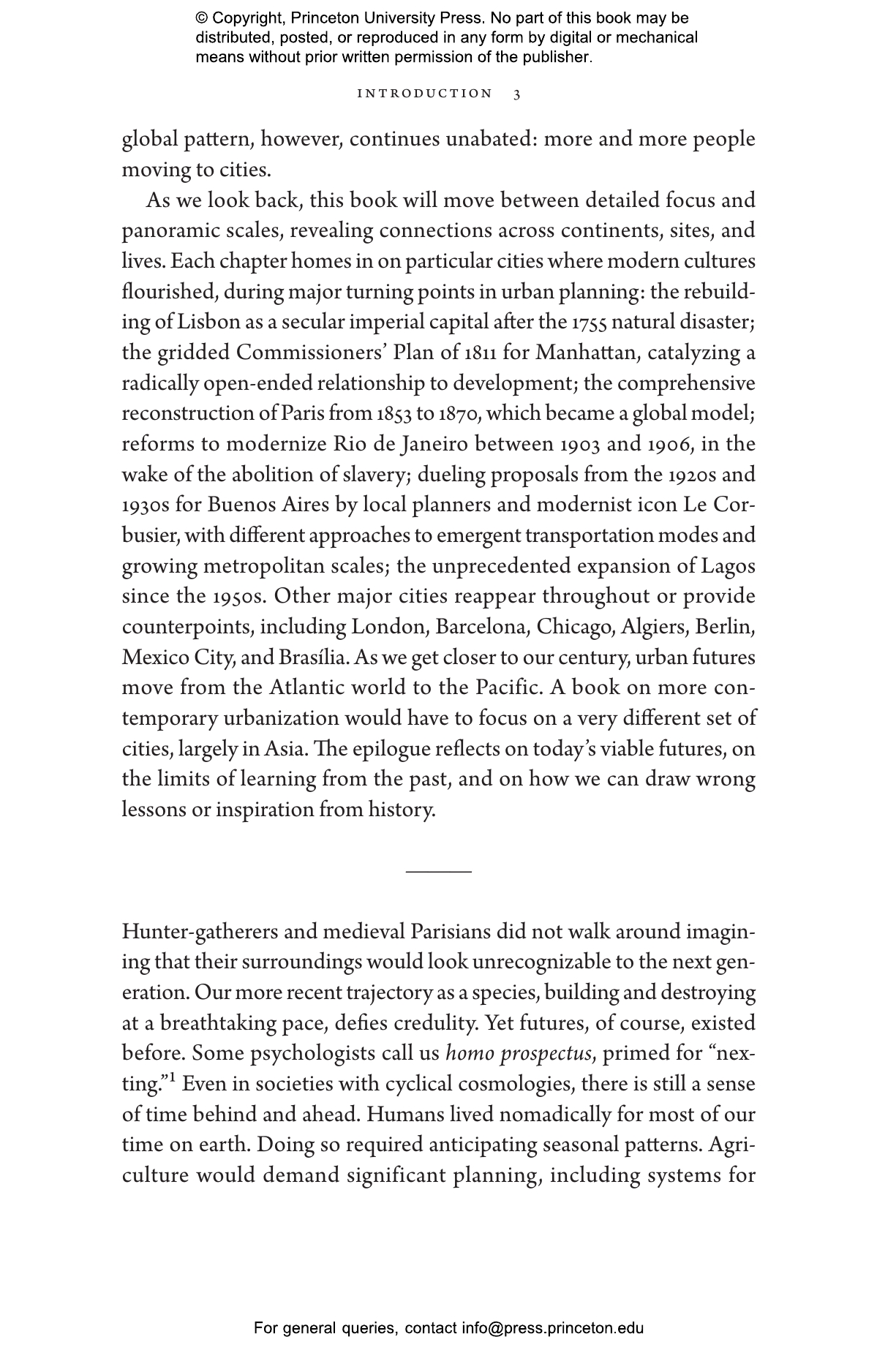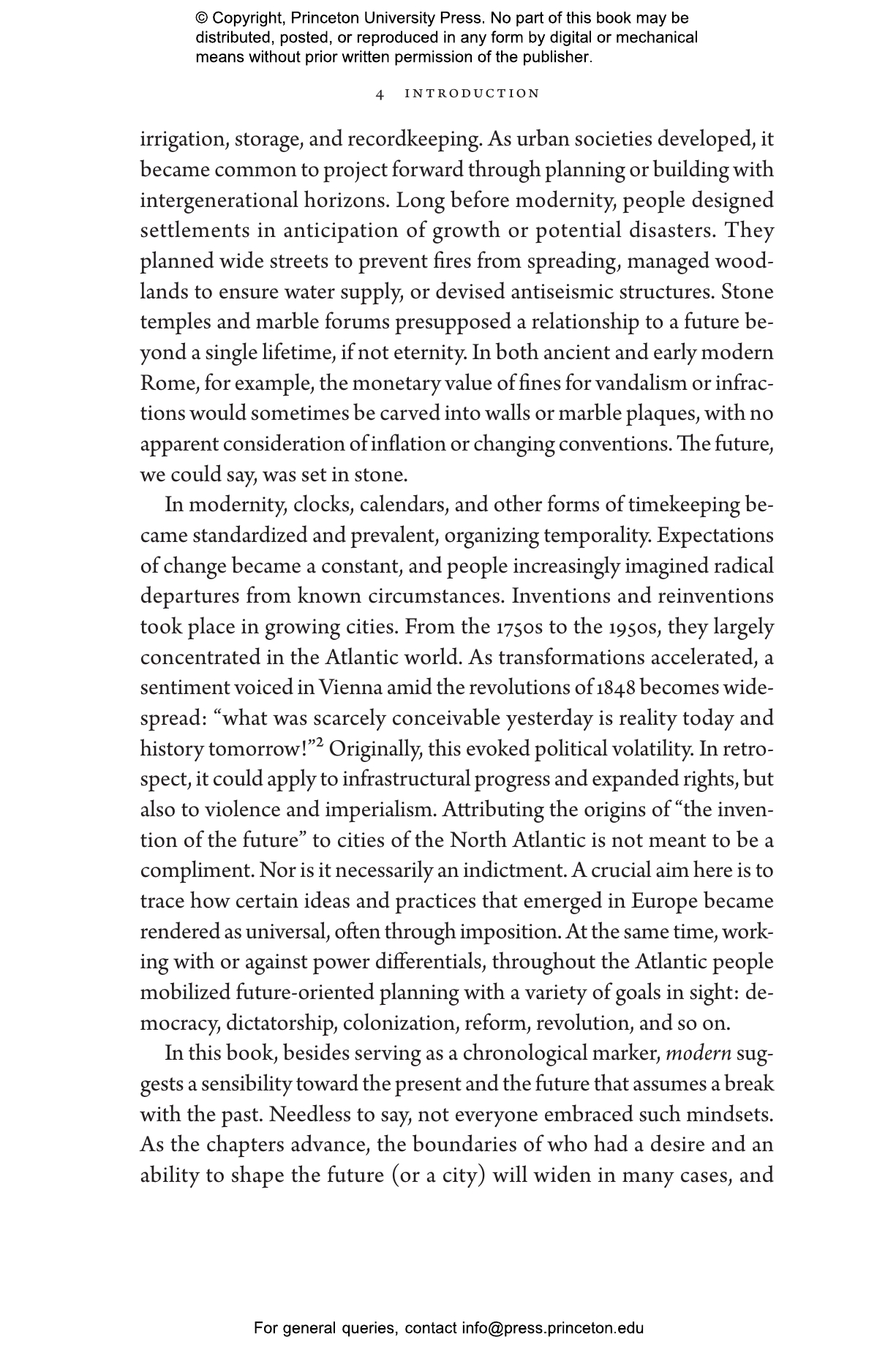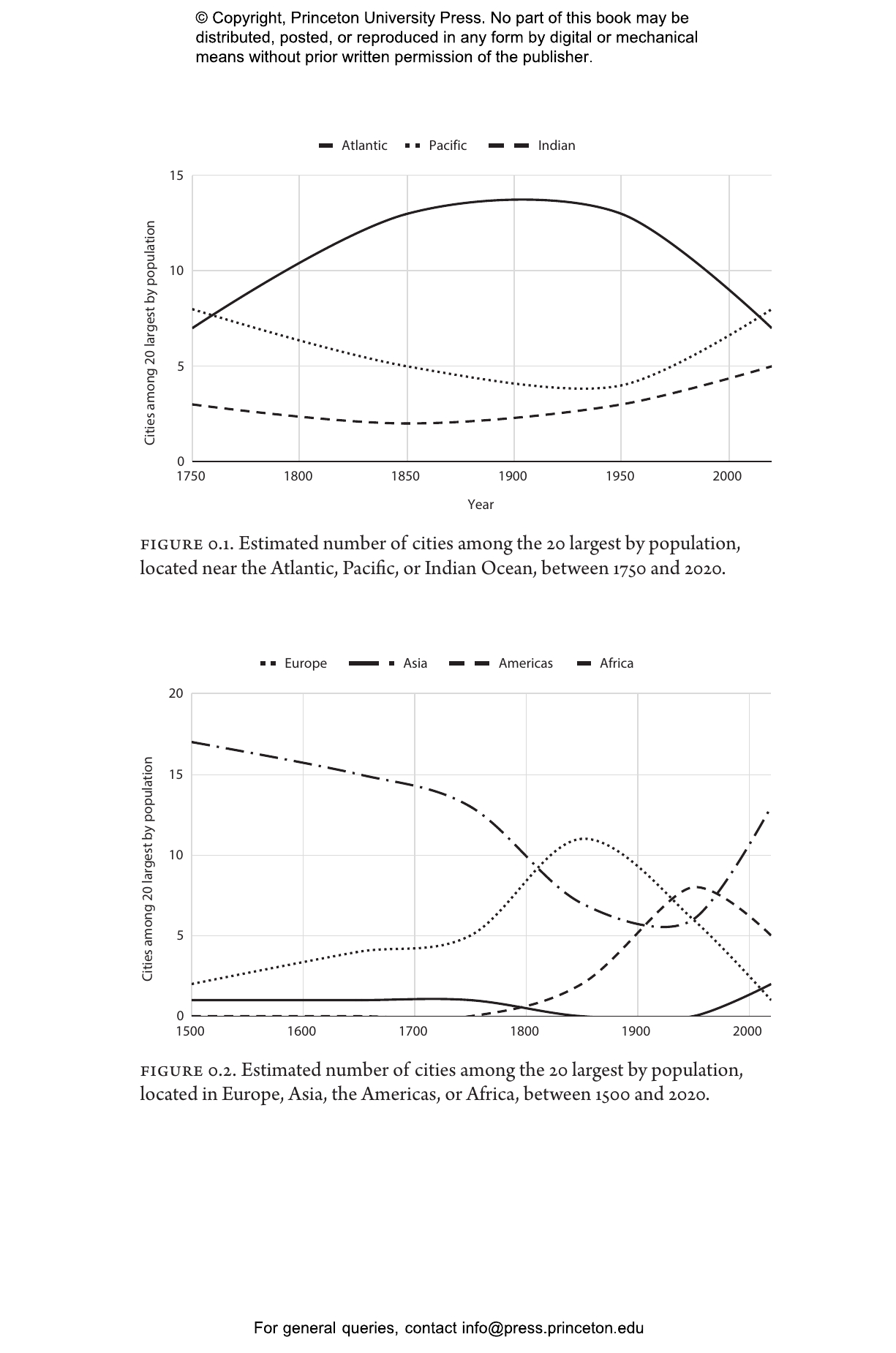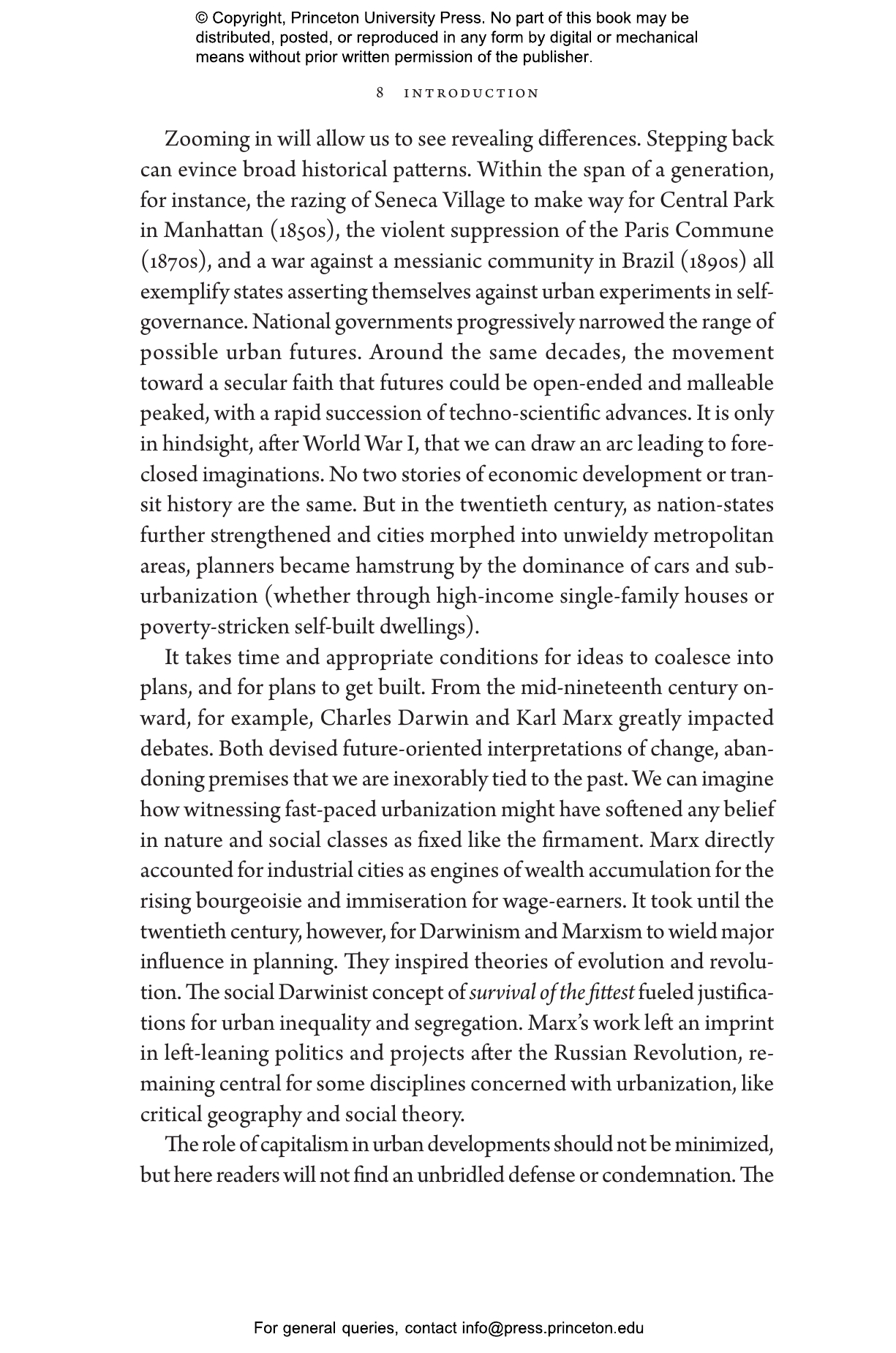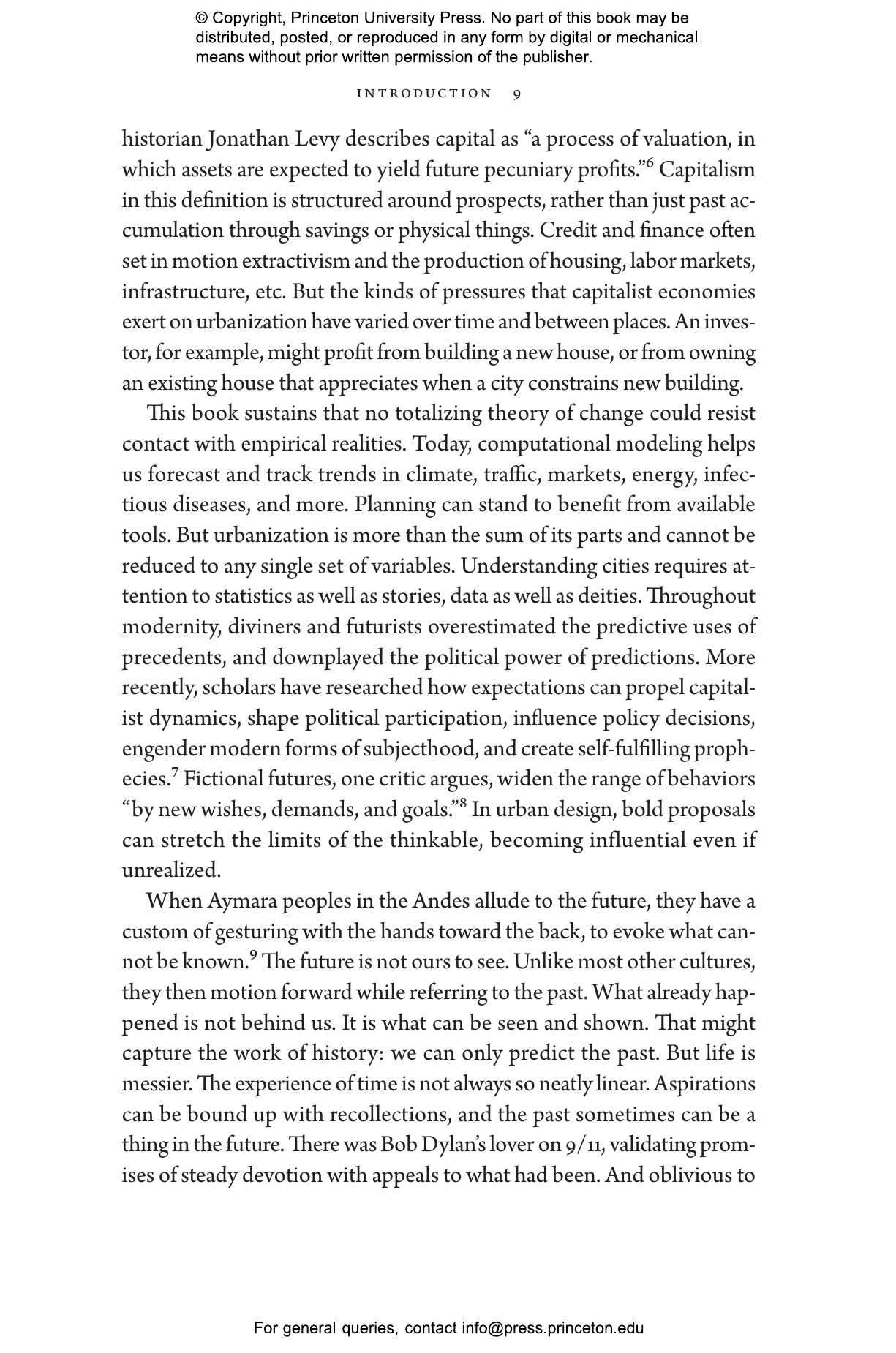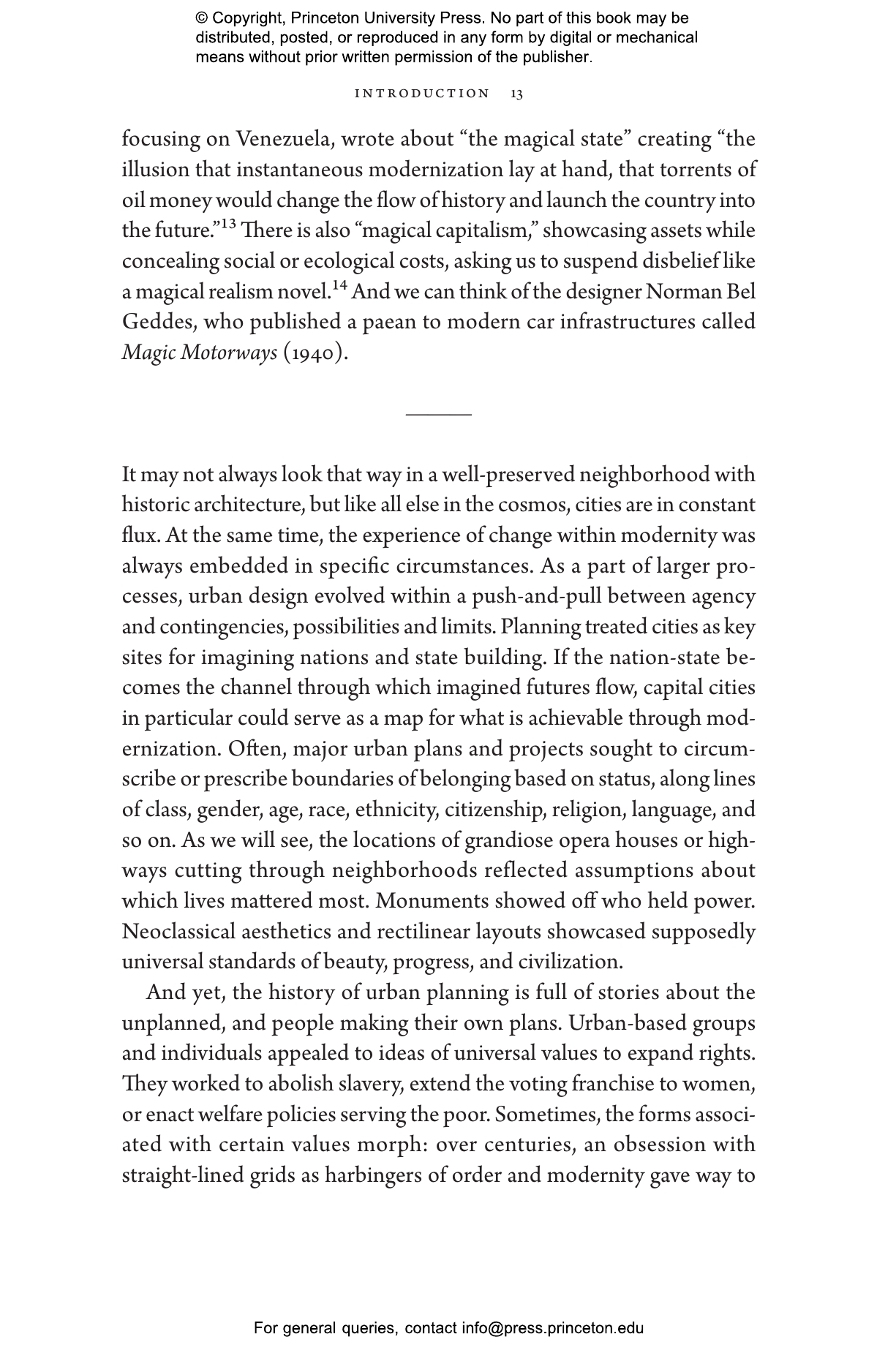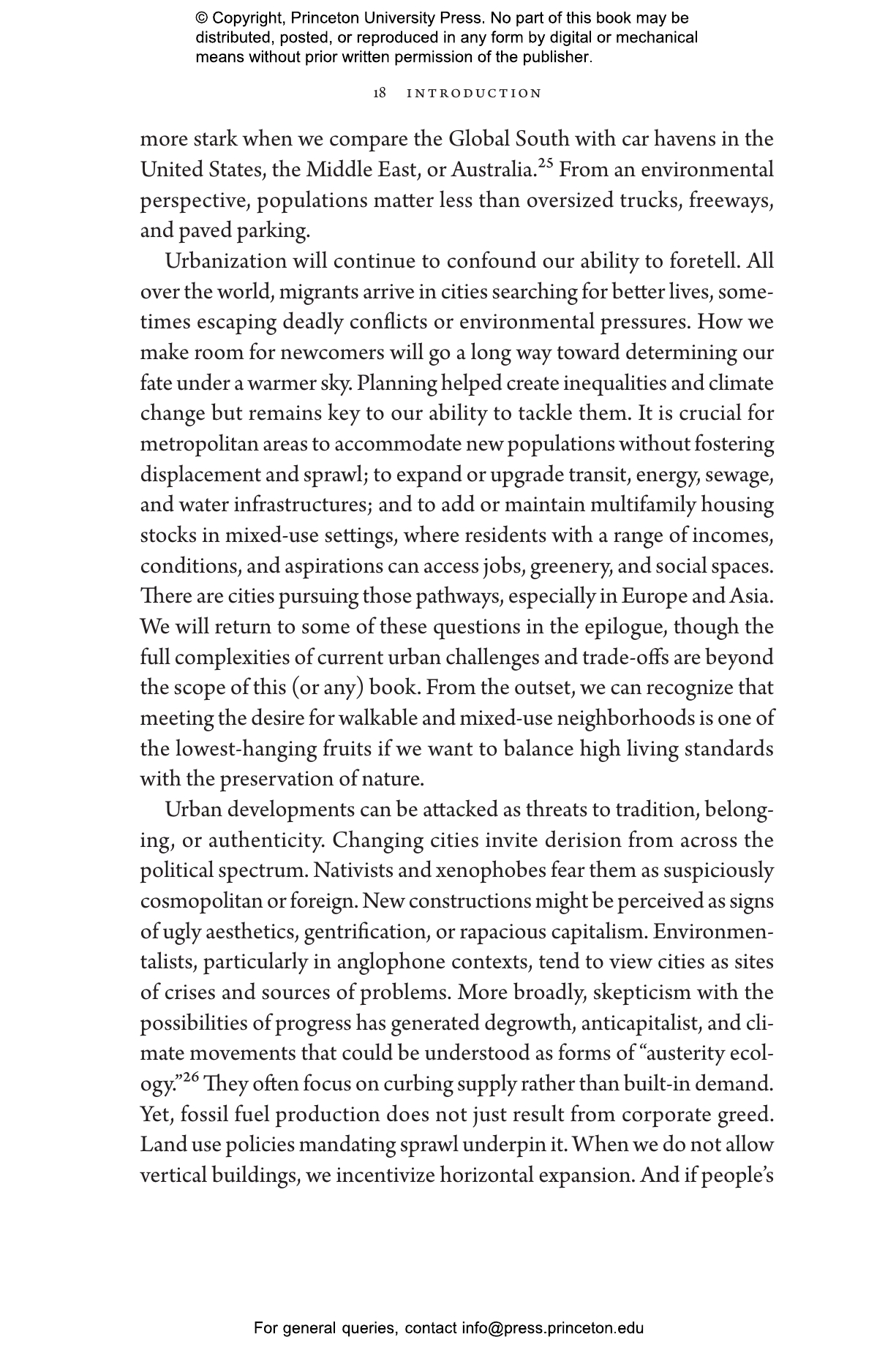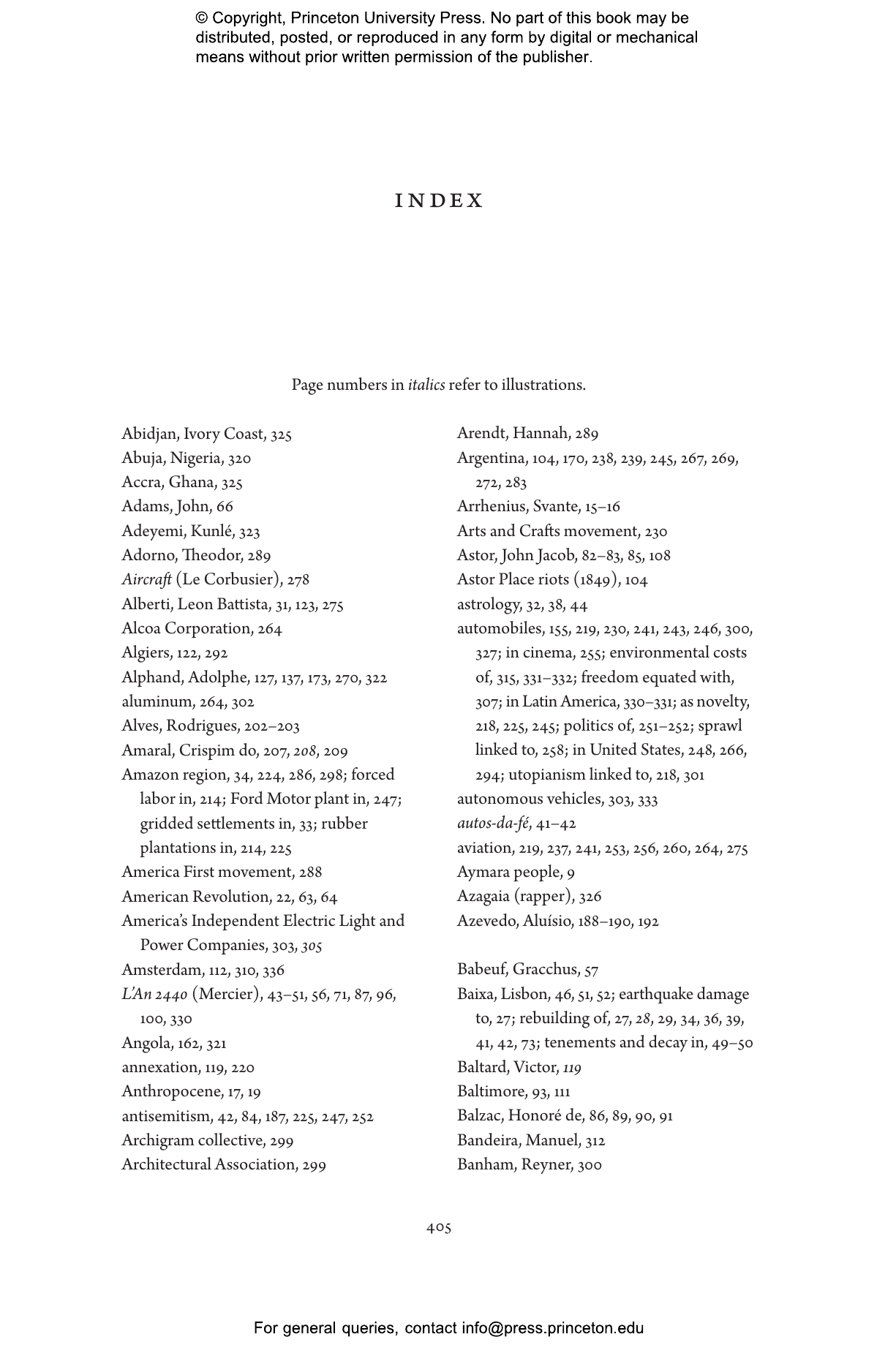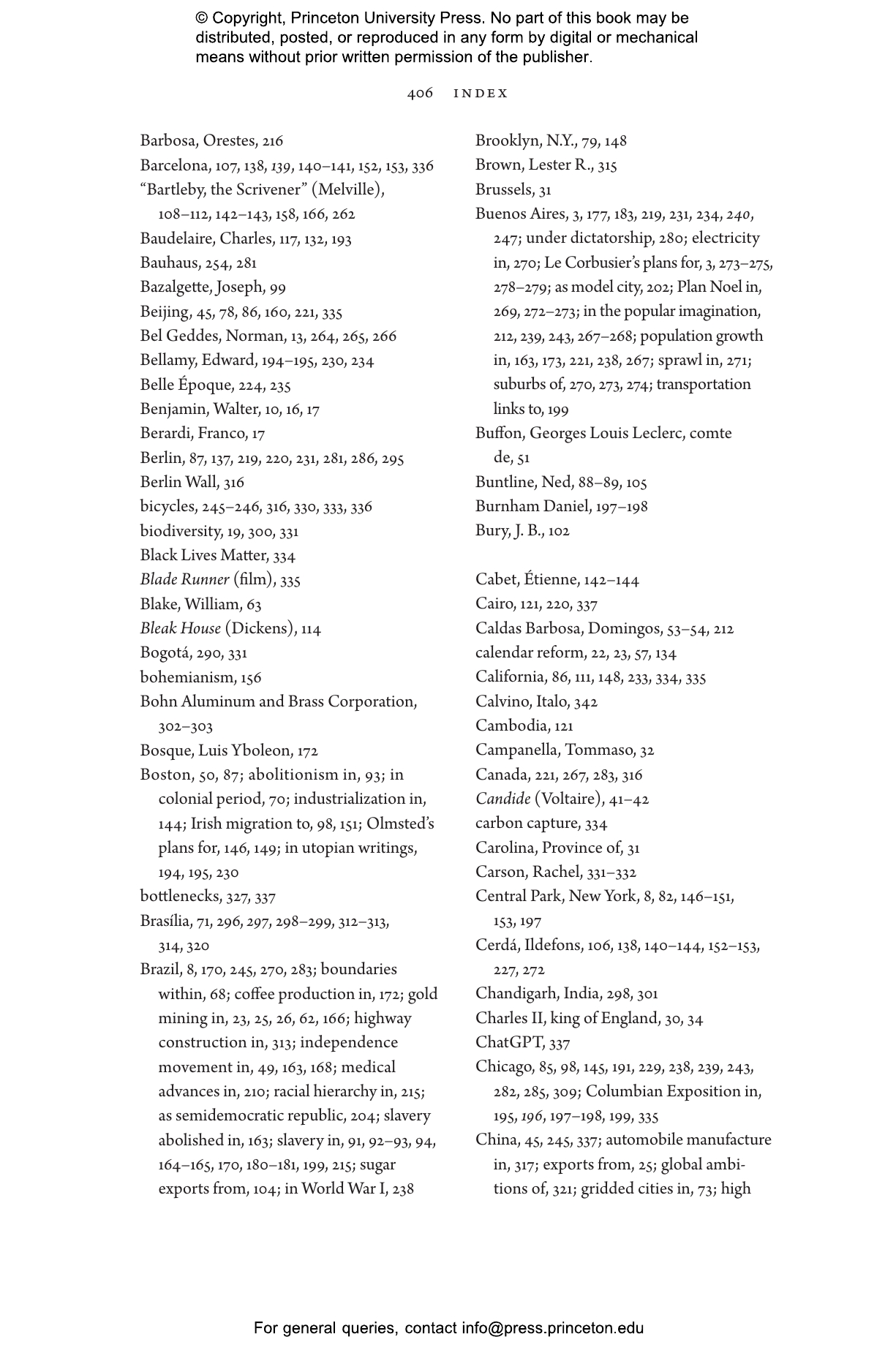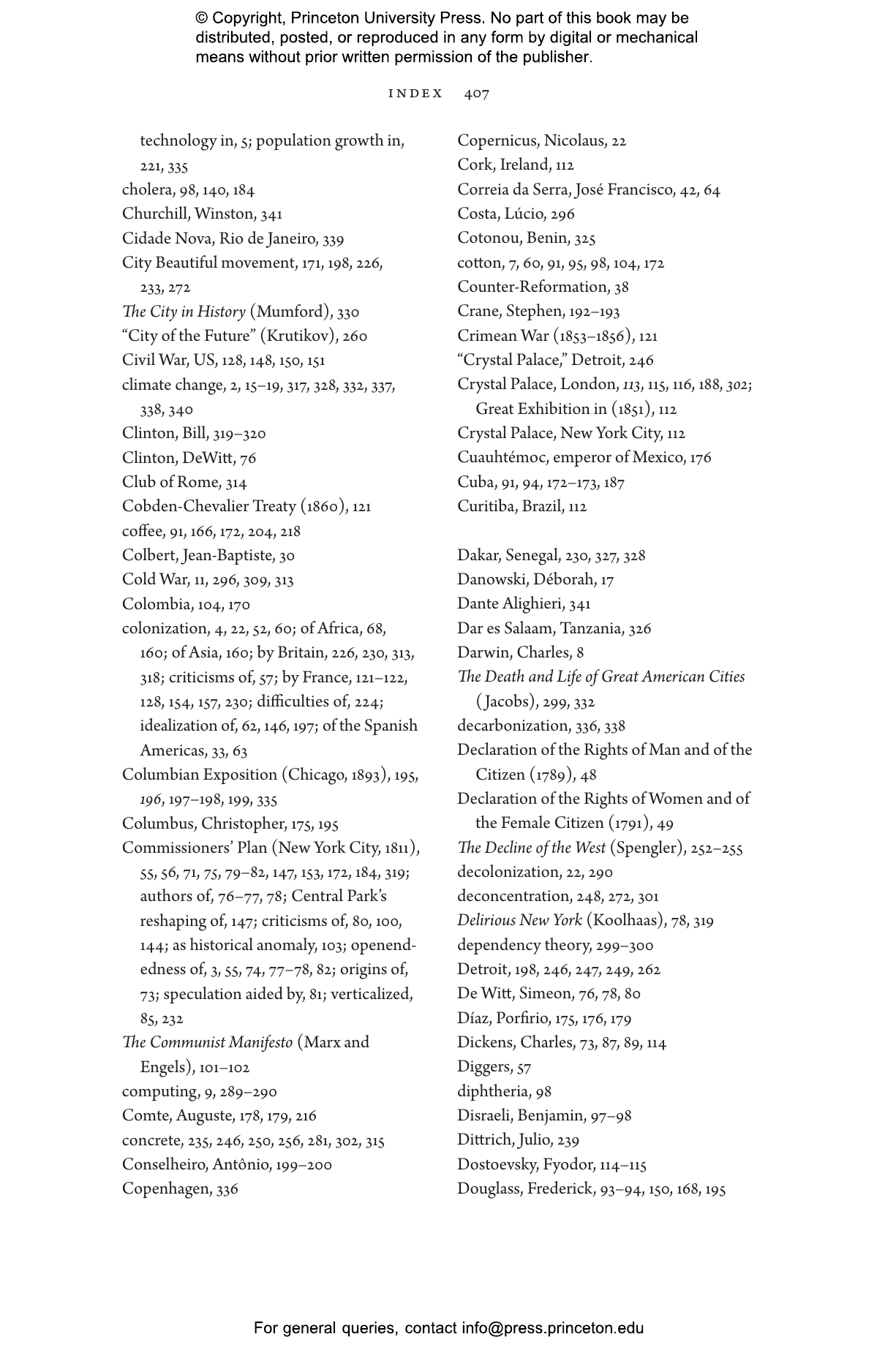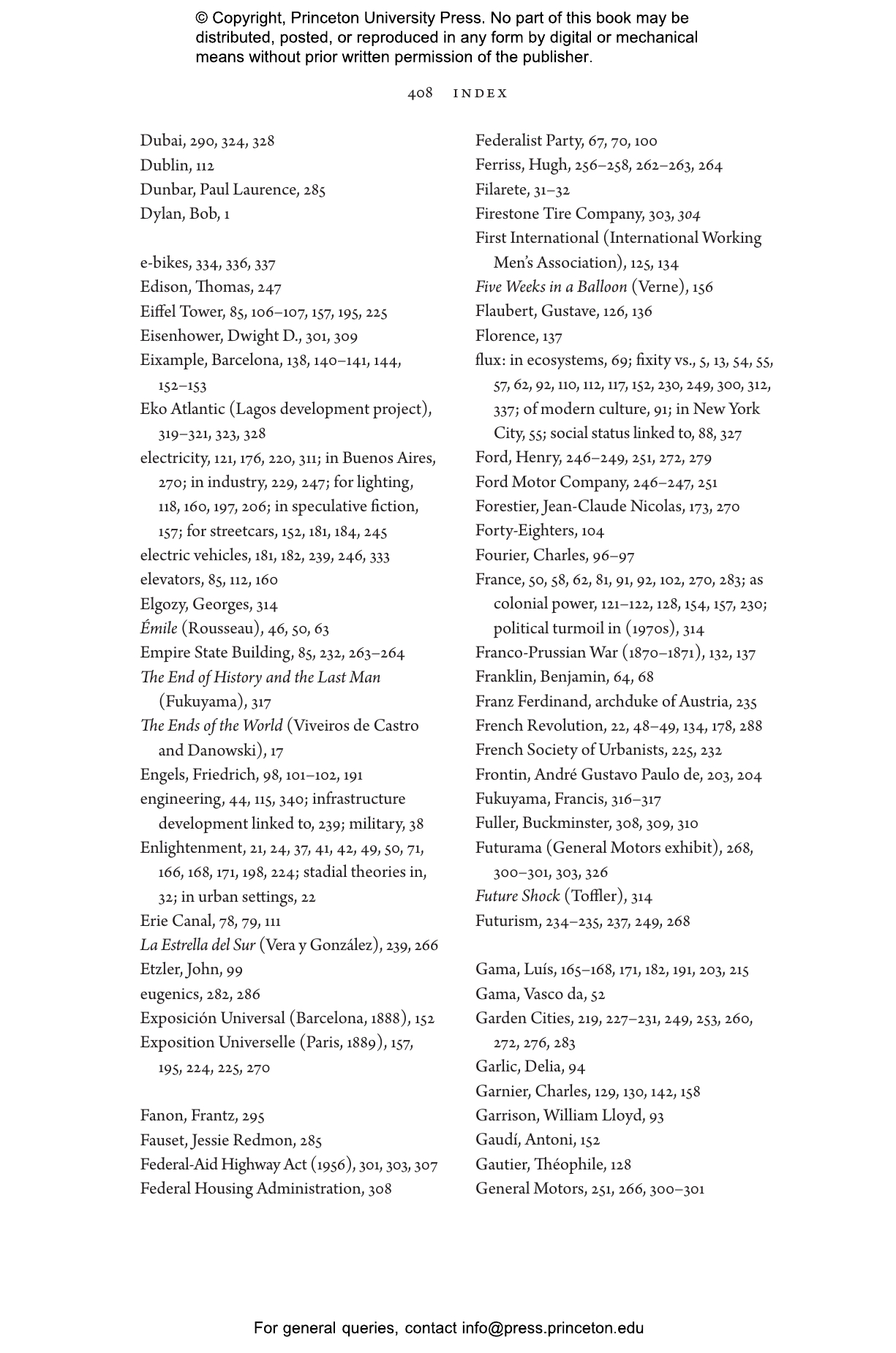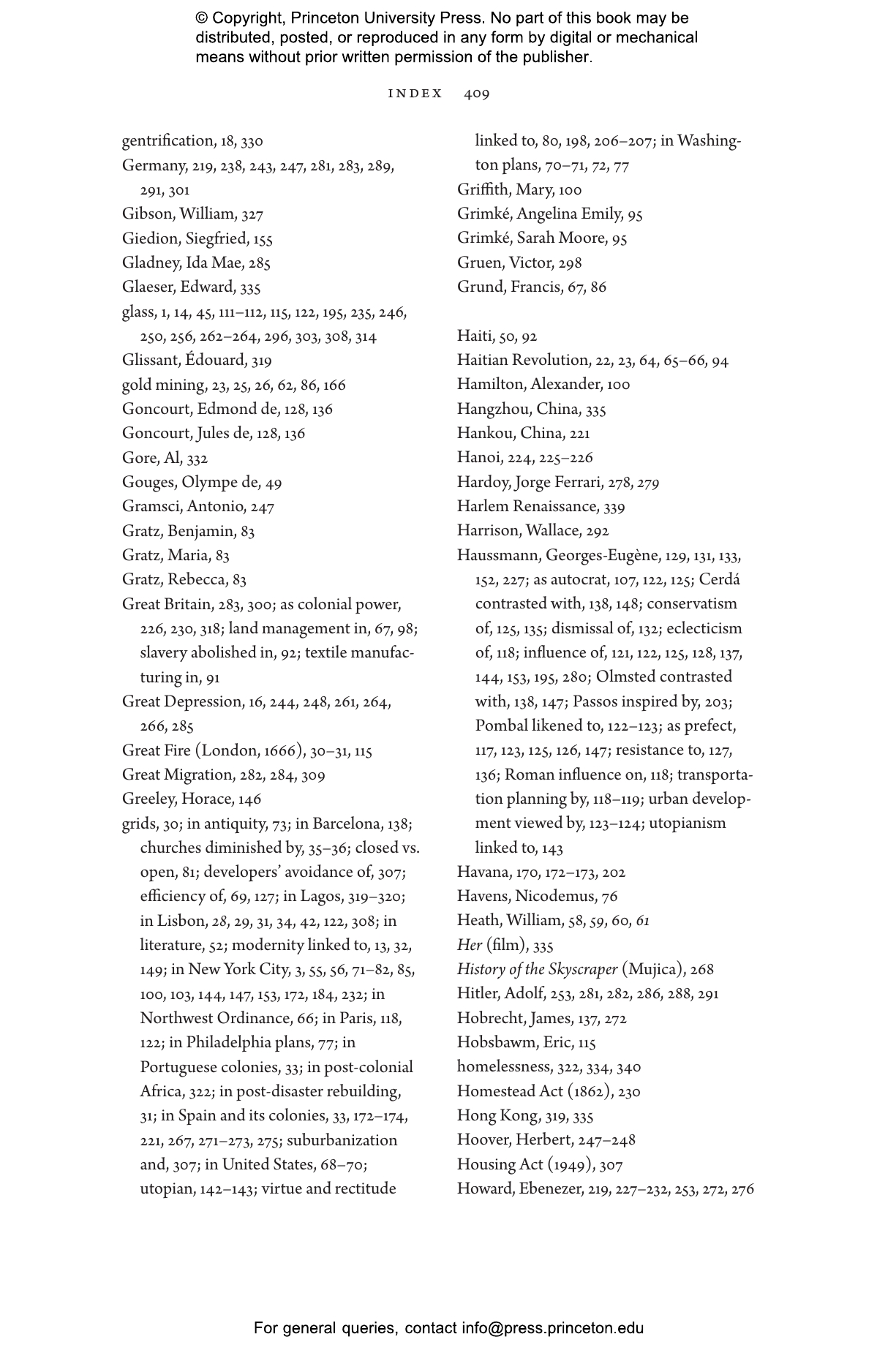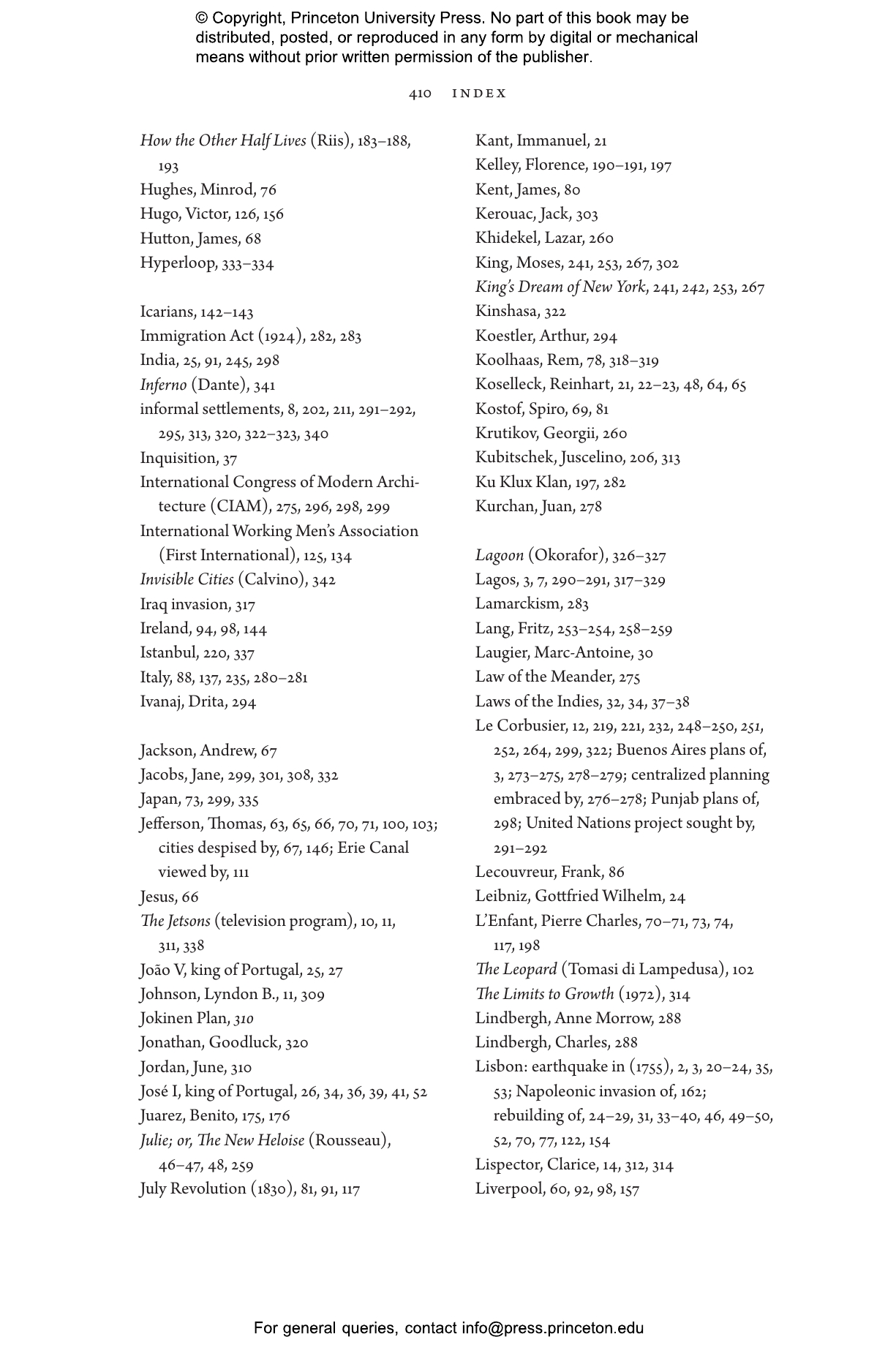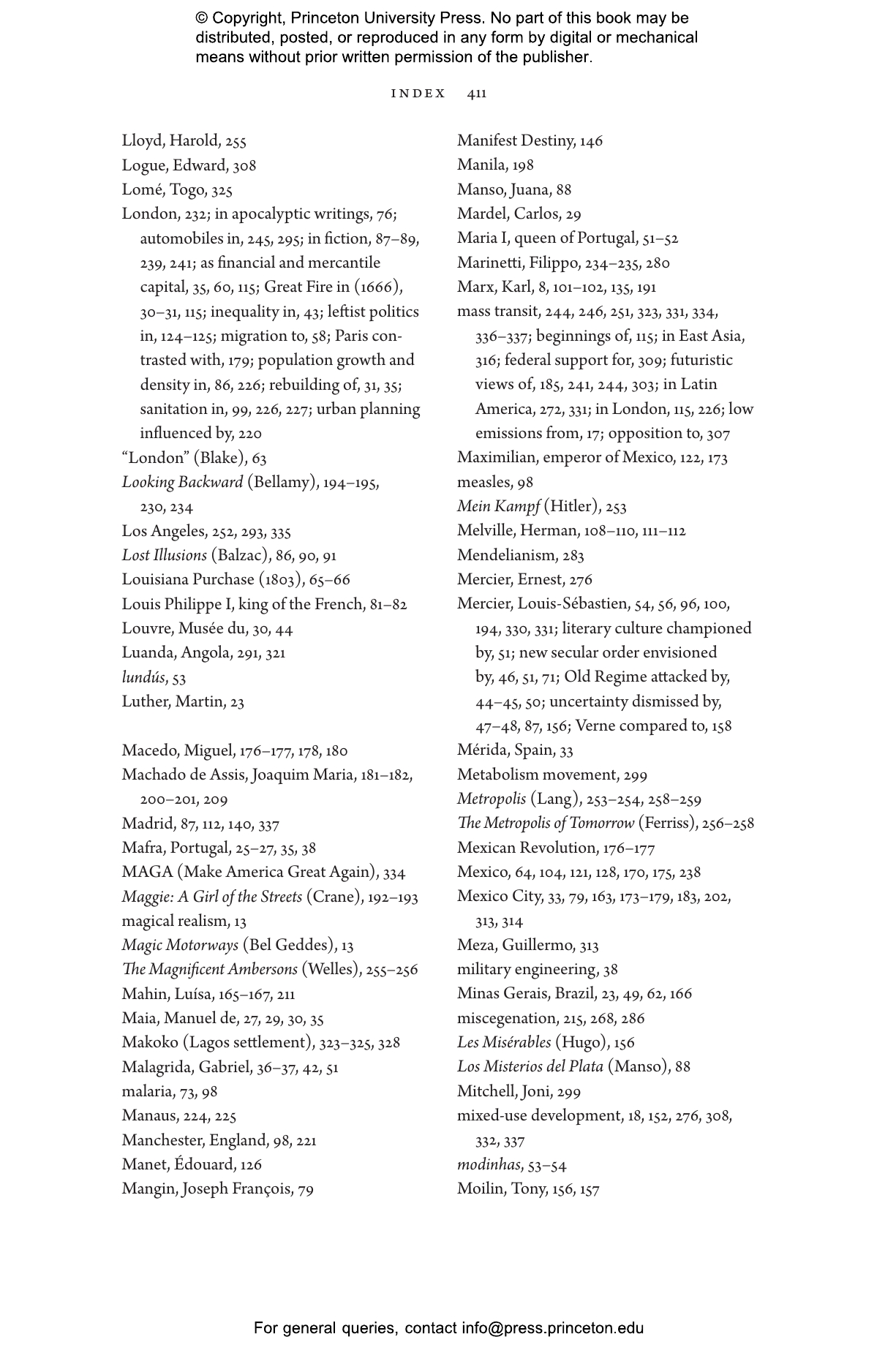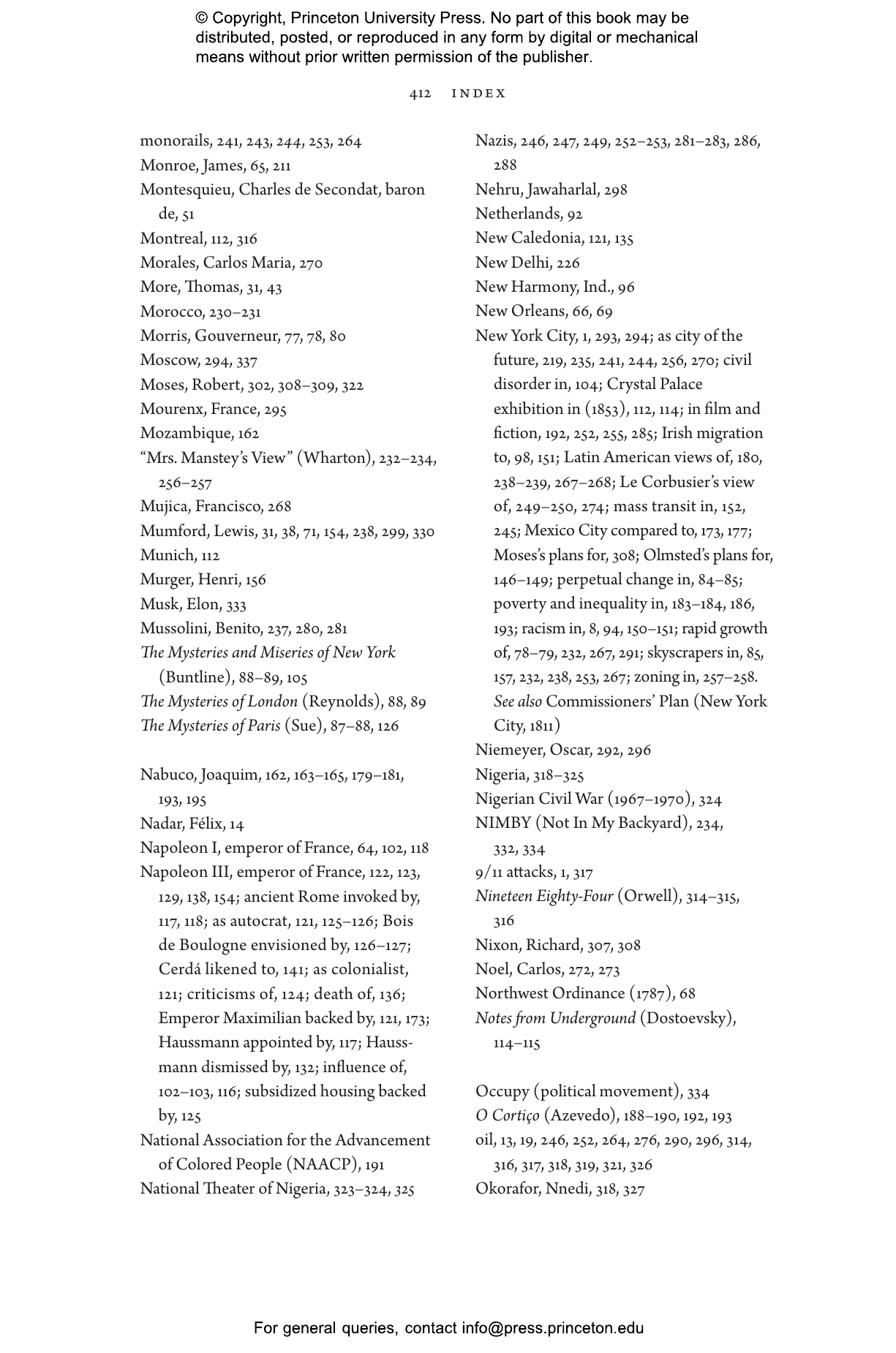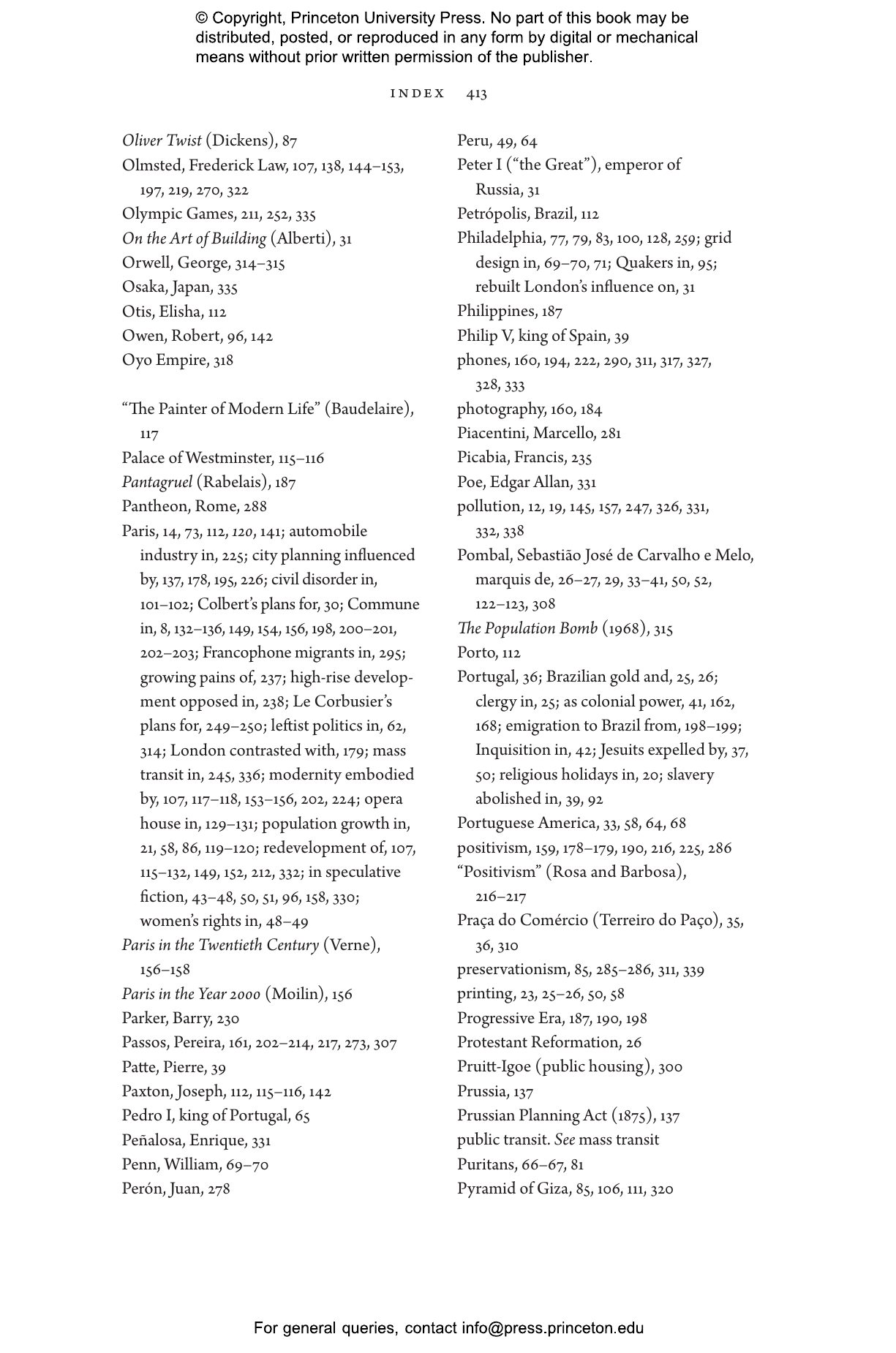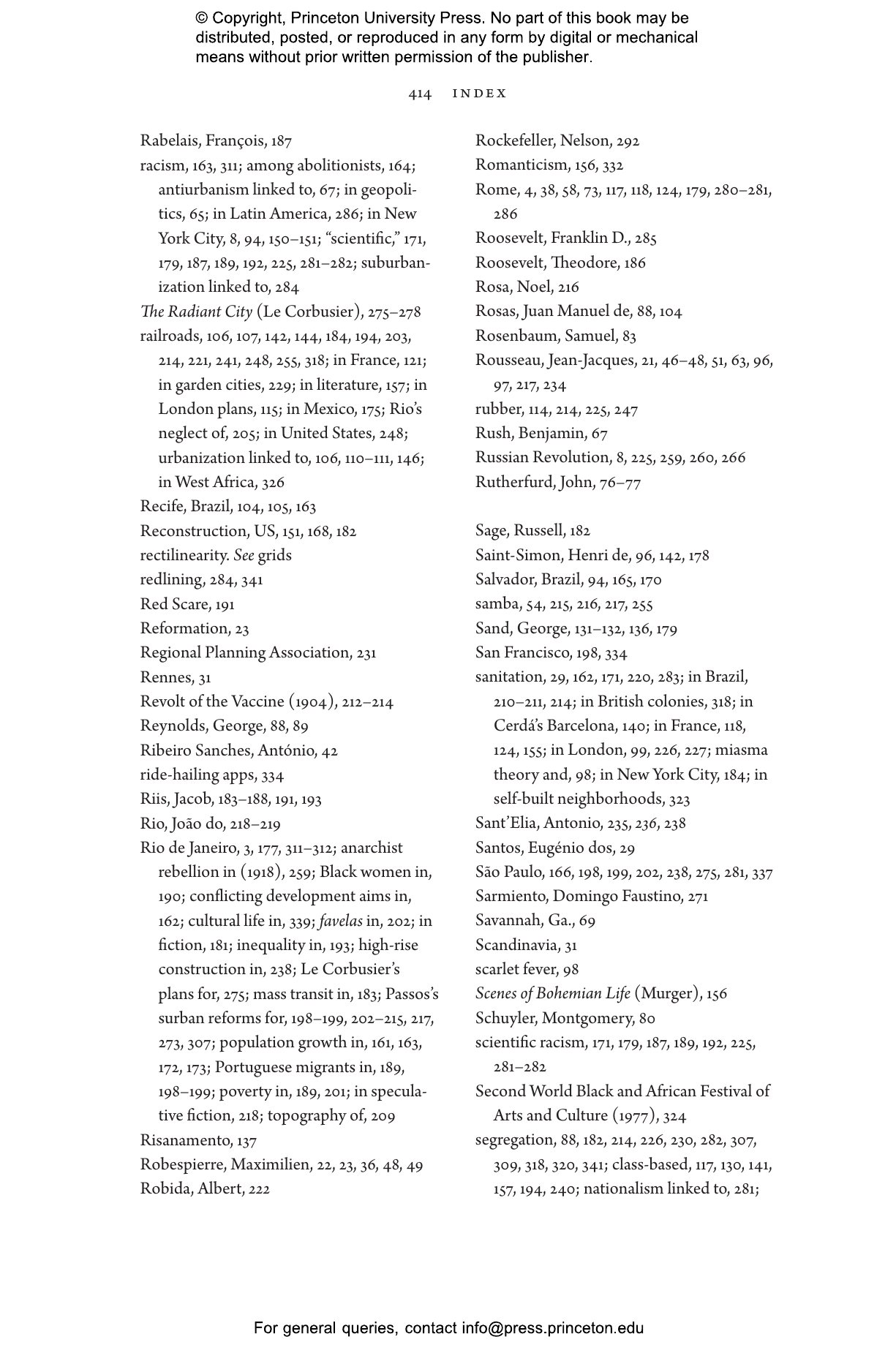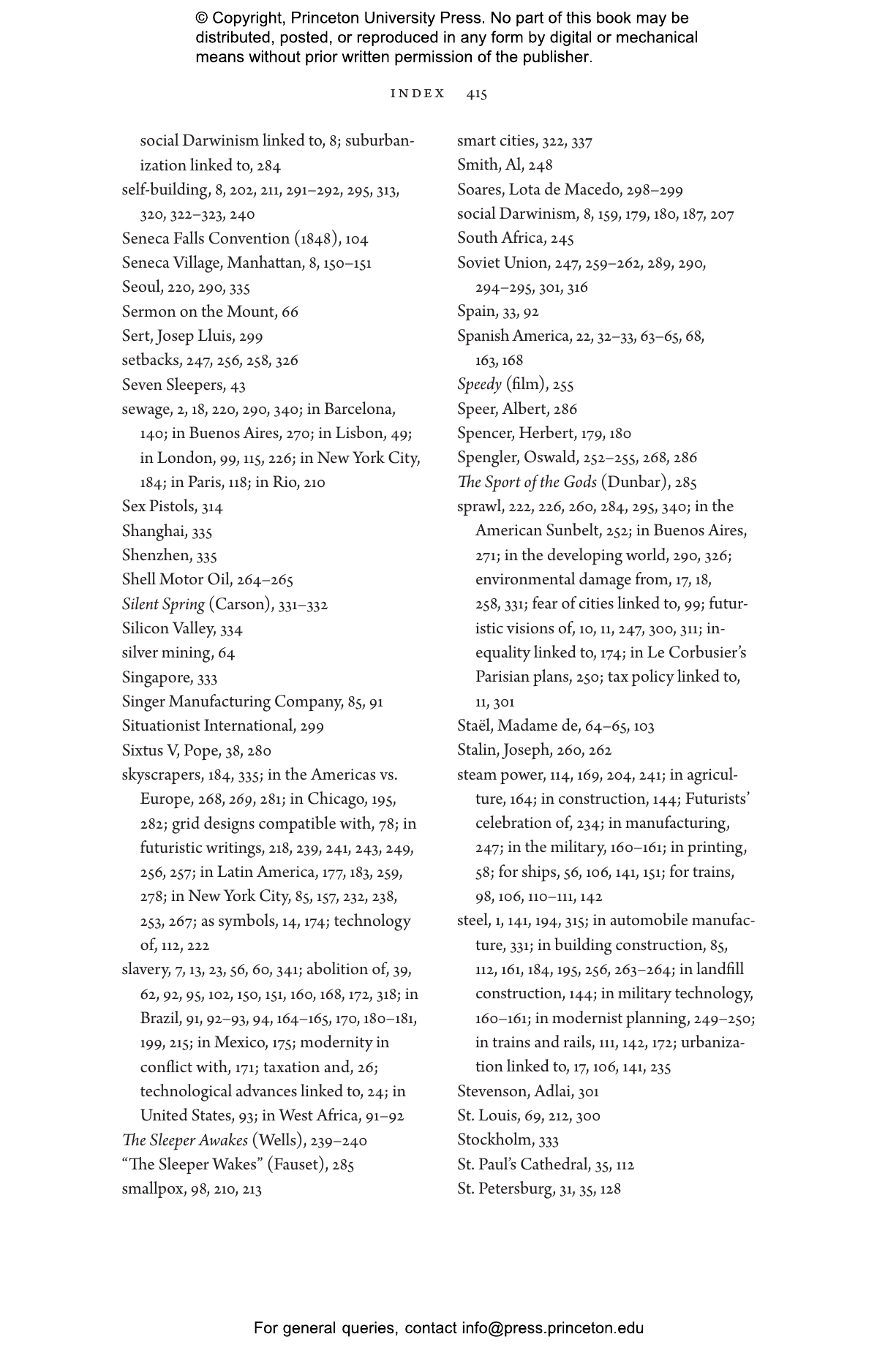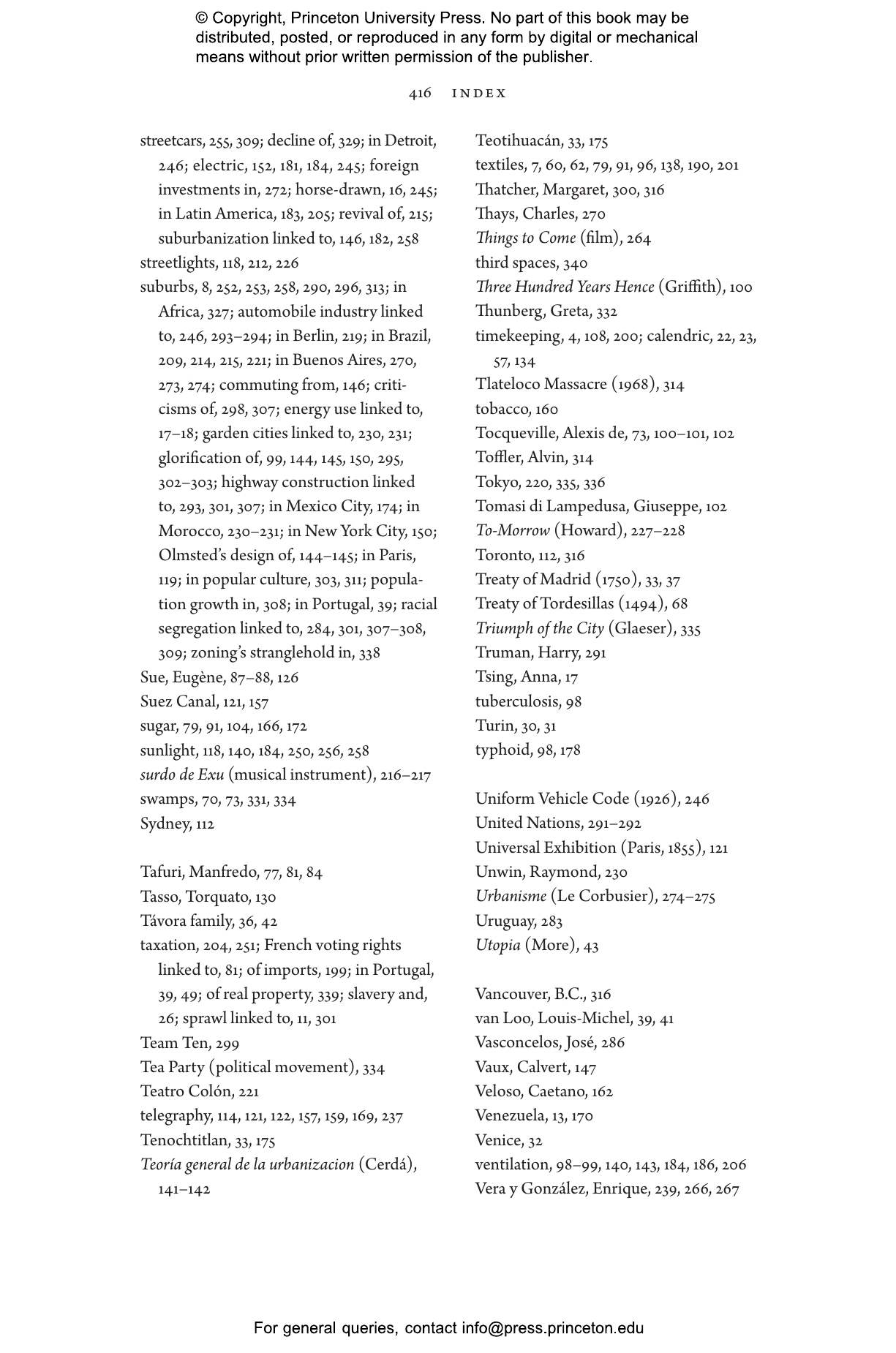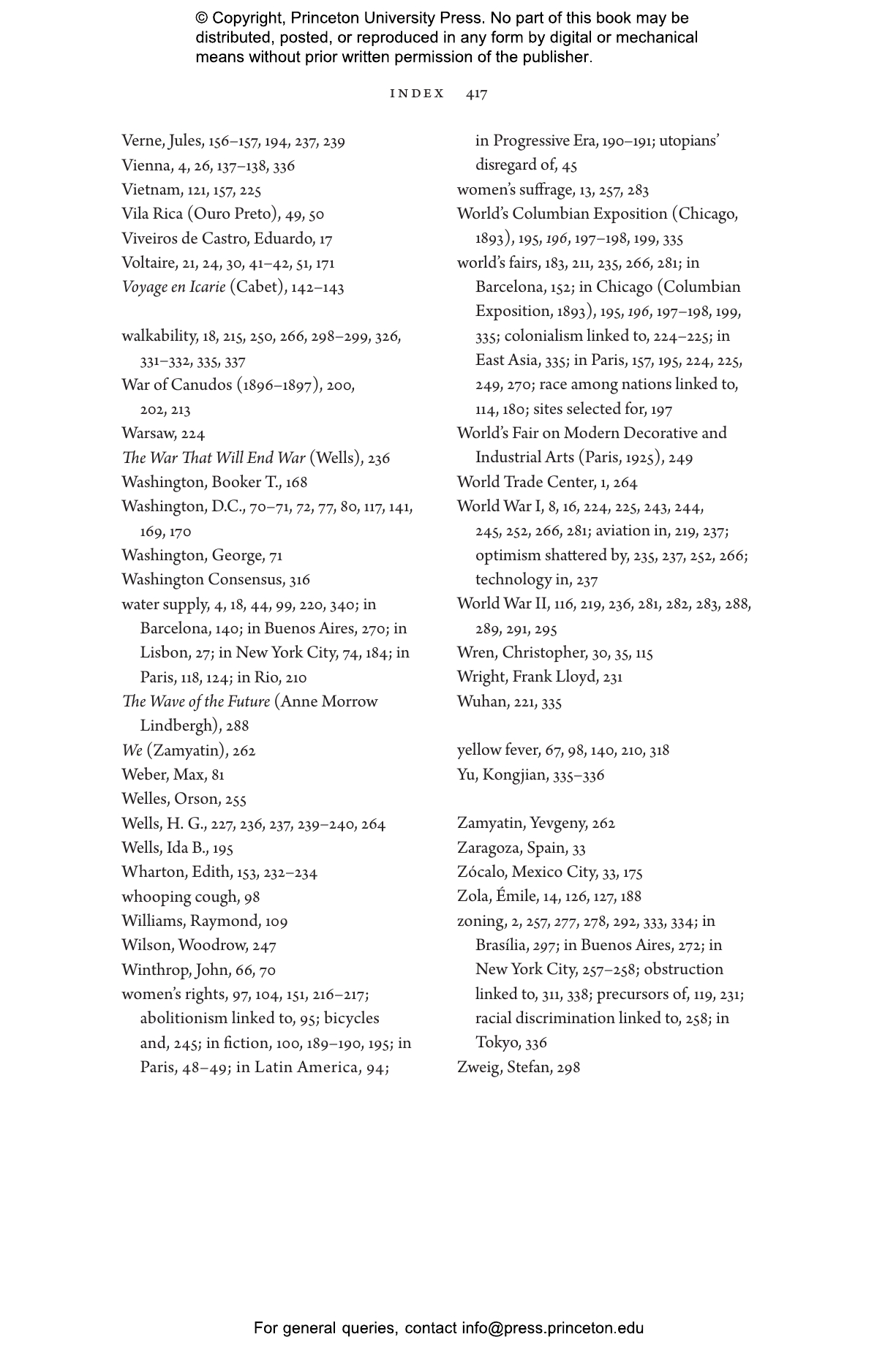For the past three centuries, urban dwellers and planners have imagined future cities that would be radically different from those of the past. Planners pursued progress, whether focused on flying vehicles above, sewage systems below, or daily life in between. Yet, as Bruno Carvalho shows in this original and wide-ranging history, which features some sixty illustrations, modern cities continuously defied predictions. Visionary designs and technological innovations created dramatic, unforeseen outcomes, and the ongoing urban boom is a story of continuity as well as rupture. A compelling history of imagined futures and the transformation of urban life, The Invention of the Future also suggests what we might learn from the stories of our cities as we shape them for the twenty-first century.
Moving between large-scale changes and detailed examples, this captivating narrative tells the story of key moments and turning points: the rebuilding of Lisbon after the 1755 earthquake; the 1811 Commissioners’ Plan for Manhattan; Parisian reforms from 1853 to 1870; Le Corbusier’s plans for South American cities in the 1920s and 1930s; the postwar victory of the car; the utopian capital of BrasÃlia; and urban growth in Africa.
In recent decades, Carvalho argues, the capacity to invent urban futures has become increasingly constrained. Social and environmental challenges loom large. But the story is not over. While cities helped create current problems, compact and transit-rich urbanization might be our best hope to combine high living standards with sustainability. Sometimes, moving forward can involve reaching back to the future.
Bruno Carvalho is a professor at Harvard University, where he teaches courses on cities. He is the author of Porous City: A Cultural History of Rio de Janeiro.
33296
“At a time when urban downtowns are struggling to reinvent themselves in the wake of the Covid pandemic, Bruno Carvalho’s ambitious book is a powerful reminder that planners, architects, writers, artists, and politicians have long been imagining new futures for their cities. With Carvalho as a dazzling guide, we travel back in time and across the globe from Europe and the Americas to Africa and Asia, discovering three centuries of city dreamers.”—Lizabeth Cohen, Bancroft Prize–winning author of Saving America’s Cities: Ed Logue and the Struggle to Renew Urban America in the Suburban Age
“Witty, erudite, playful, and serious, The Invention of the Future is a book about cities but also so much more. It is about how we have lived together in the past, and how we might live in, and reclaim, the future. A brilliant, one-of-a-kind book in which every reader will learn something new on every page.”—Jonathan Levy, author of Ages of American Capitalism: A History of the United States
“The Invention of the Future takes readers on a rich and revealing journey through the cities of the Atlantic world, illuminating centuries of metropolitan growth and urban visions. Bruno Carvalho offers us a fascinating intellectual odyssey that joins historical narrative with past imaginings of things to come.”—A. K. Sandoval-Strausz, editor of Metropolitan Latinidad: Transforming American Urban History
“In this lucid and ambitious book about the history of cities since 1750, Bruno Carvalho chronicles the making and remaking of major urban centers around the world. He pays close attention to the dreams of planners, revolutionaries, suburbanites, migrants, and others that have shaped the course of cities, from Lisbon and New York to Rio de Janeiro and Lagos. The Invention of the Future synthesizes a vast and vital topic.”—Jeanne Gang, Founding Partner of Studio Gang and Fellow of the American Institute of Architects
This publication has been produced to meet accepted Accessibility standards and contains various accessibility features including concise image descriptions, a table of contents, a page list to navigate to pages corresponding to the print source version, and elements such as headings for structured navigation. Appearance of the text and page layout can be modified according to the capabilities of the reading system.
Accessibility Features
-
WCAG v2.2
-
WCAG level AA
-
Table of contents navigation
-
Single logical reading order
-
Short alternative textual descriptions
-
Print-equivalent page numbering
-
Landmark navigation
-
Index navigation
-
Epub Accessibility Specification 1.1
-
ARIA roles provided
-
All non-decorative content supports reading without sight
-
No known hazards or warnings


